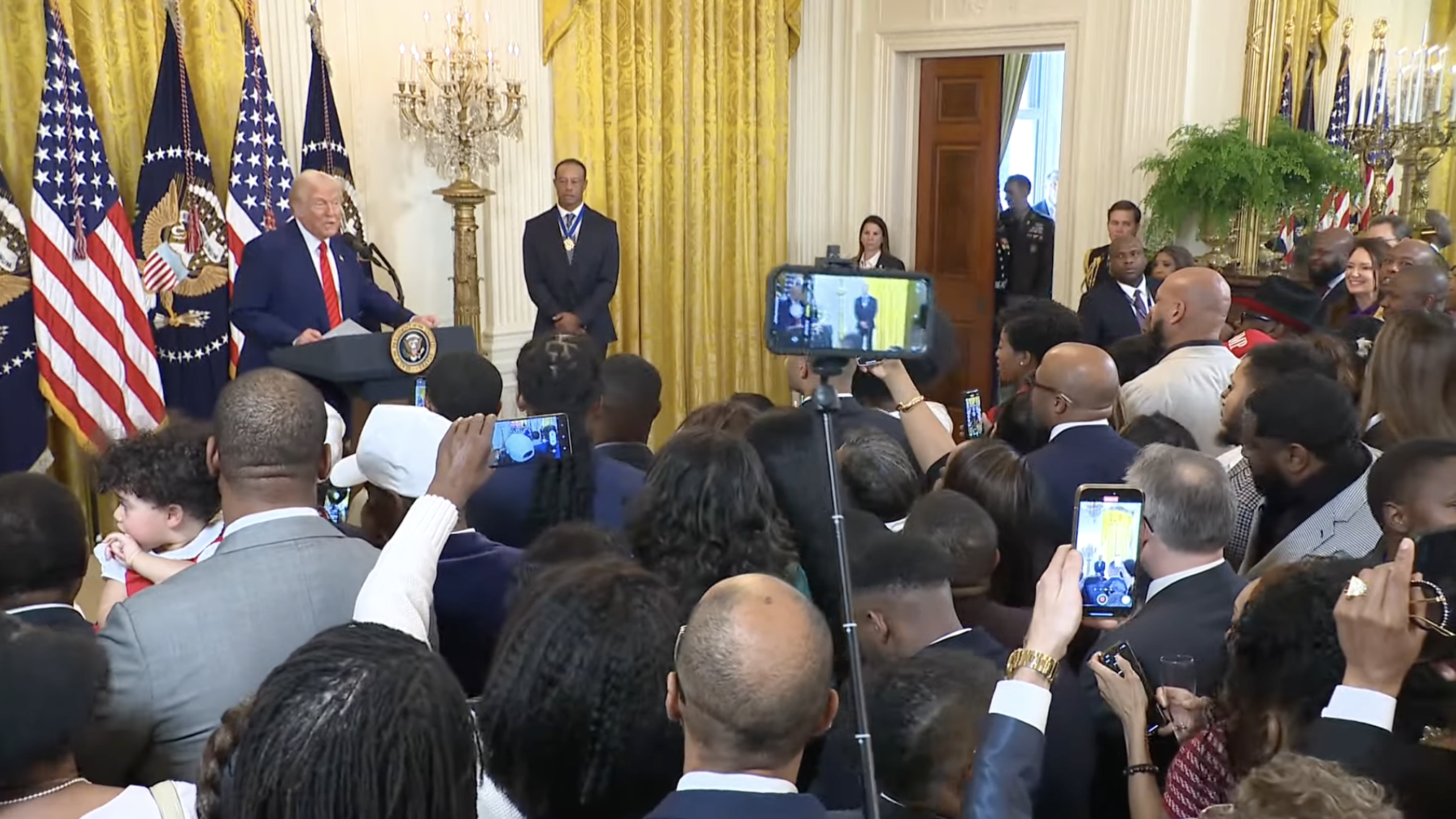
President Donald Trump hosted a Black History Month reception, February 20, where he announced late Los Angeles Lakers star Kobe Bryant would be honored with a statue in the National Garden of American Heroes.
“Today we pay tribute to the generations of Black legends, champions, warriors and patriots who help drive our country forward to greatness, and you really are great, great people,” said Trump.
He goes on to say that his administration is going to produce ‘some of the most beautiful works of art in the form of a statue for men like Booker Douglas, Jackie Robinson.’
“…and the late Kobe Bryant. People like Kobe Bryant.” said Trump.
Kobe Bryant was a legendary NBA player who spent his entire 20-year career with the Los Angeles Lakers, winning five championships and earning two Finals MVP awards. Bryant died in a helicopter crash in 2020, along with his daughter Gianna and seven others.
Martin Luther King, Jr., Muhammad Ali, and Aretha Franklin will be honored
Trump reinstated his plans to create the garden through an executive order, where statues of 250 Americans will honor historical figures from various fields such as sports, civil rights, politics, and science.
Other Black American icons to be honored in the garden include Martin Luther King, Jr., Muhammad Ali, Harriet Tubman, Rosa Parks, Aretha Franklin and Coretta Scott King.
Recognition comes amid ‘tens of thousands of Black workers who could lose their jobs’
The recognition comes amid the administration’s workforce reduction that aims to eliminate over 2 million federal jobs.
According to American Progress, federal employment has historically provided Black Americans with opportunities for economic stability and upward mobility.
Approximately 18% of Black workers are employed in the public sector, while making up only 14% of the entire U.S. population.
“We’re talking about tens of thousands of Black workers who could lose their jobs,” said City University of New York associate professor Michelle Holder. “It would be pretty devastating to the Black community writ large, just in terms of loss of income, a loss of benefits, potentially loss of health insurance.”

